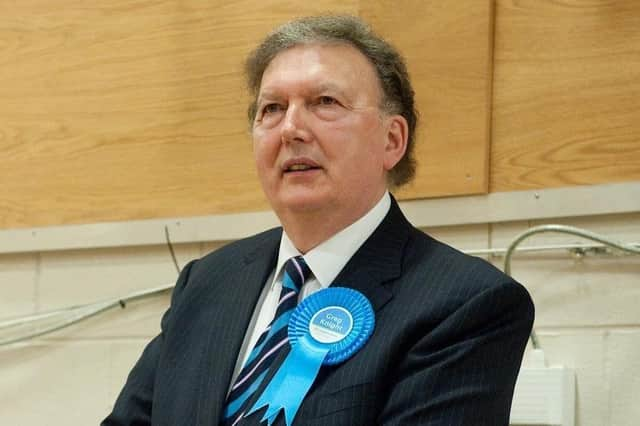House of Commons Library data shows behind the scenes work by East Yorkshire MP Sir Greg Knight


Much of the day-to-day business of being an MP takes place in committees, which examine issues in detail, from Government policy and proposed new laws, to wider topics like the economy.
Analysis of figures from the House of Commons Library shows some of the work that the Conservative MP for East Yorkshire does behind the scenes.
Advertisement
Hide AdAdvertisement
Hide AdSir Greg Knight was sitting on two committees, as of March 7 this year. These were the Administration Committee and Motor Vehicles (Compulsory Insurance) Bill.
The average sitting MP was also a part of two committees, while around a quarter were not part of any.
Members can also be active in informal, cross-party All-Party Parliamentary Groups (APPGs), for those who share a common interest in a particular policy area, region or country.
Sir Greg, 73, had a role in five APPGs.
The vast majority of bills that the House passes into law come from the ruling party, but MPs – typically those not in Government – can also introduce legislation through Private Members’ bills.
Advertisement
Hide AdAdvertisement
Hide AdMPs can also bring forward petitions, calling for Government action, on behalf of their constituents – but Sir Greg has not presented any.
Finally, Members can apply for certain types of debates or Urgent Questions to initiate discussions on a topic in the Commons or Westminster Hall. However, Greg Knight, who was elected to his seat on June 7, 2001, has not been granted any applications during this Parliament.
John O’Connell, chief executive of the TaxPayers’ Alliance, said: “These figures give taxpayers some much-needed insight into the workloads of their Westminster representatives.
“Given the average MP now costs over £200,000 in total, constituents are right to expect them to deliver on their duties. It’s up to the electorate to decide if parliamentarians are earning their keep.”